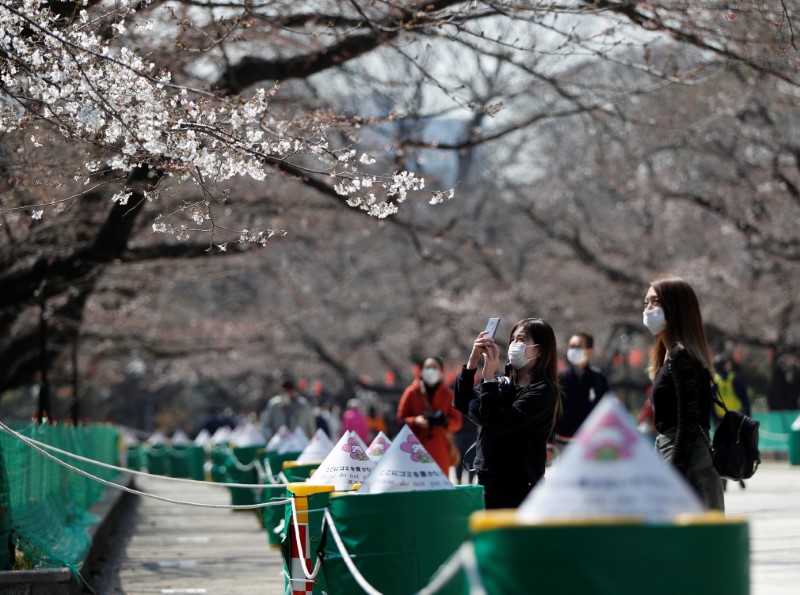TOKYO (Reuters) - Japan's famed cherry blossom season is in full bloom but parks in Tokyo are empty of traditional "viewing parties" this year, part of efforts to stem the spread of the coronavirus.
Cherry blossom viewing known "hanami" is a beloved part of the Japanese social calendar, with friends, family and work colleagues gathering for picnics, often with copious amounts of alcohol, beneath the picturesque pink flowers.
Japan's Meteorological Agency declared the start of Tokyo's cherry blossom season on March 14, the earliest ever for the capital and 12 days earlier than an average year due to rising temperatures.
But the Tokyo government has urged citizens to refrain from hanami parties given the crisis. Major cherry blossom festivals have been canceled, ropes have been set up around the trees and signs reading "no parties allowed" have been posted.
"I think it's better to temporarily refrain from viewing parties," said Junya Shigemasu, a university student. "It's a burden on the people, but I feel it's important to stop the virus from spreading further."
Japan has recorded more than 1,600 cases of the virus, including about 700 from the Diamond Princess cruise liner. Thirty-nine people have died, including seven from the liner.
Doubts are also mounting about whether the Tokyo Olympic Games, scheduled for July 24-Aug. 9, can proceed as planned given the disruptions globally caused by the pandemic.

Tokyo Games and Japanese government officials have said, however, the event will go ahead as scheduled and will not be held behind closed doors.
